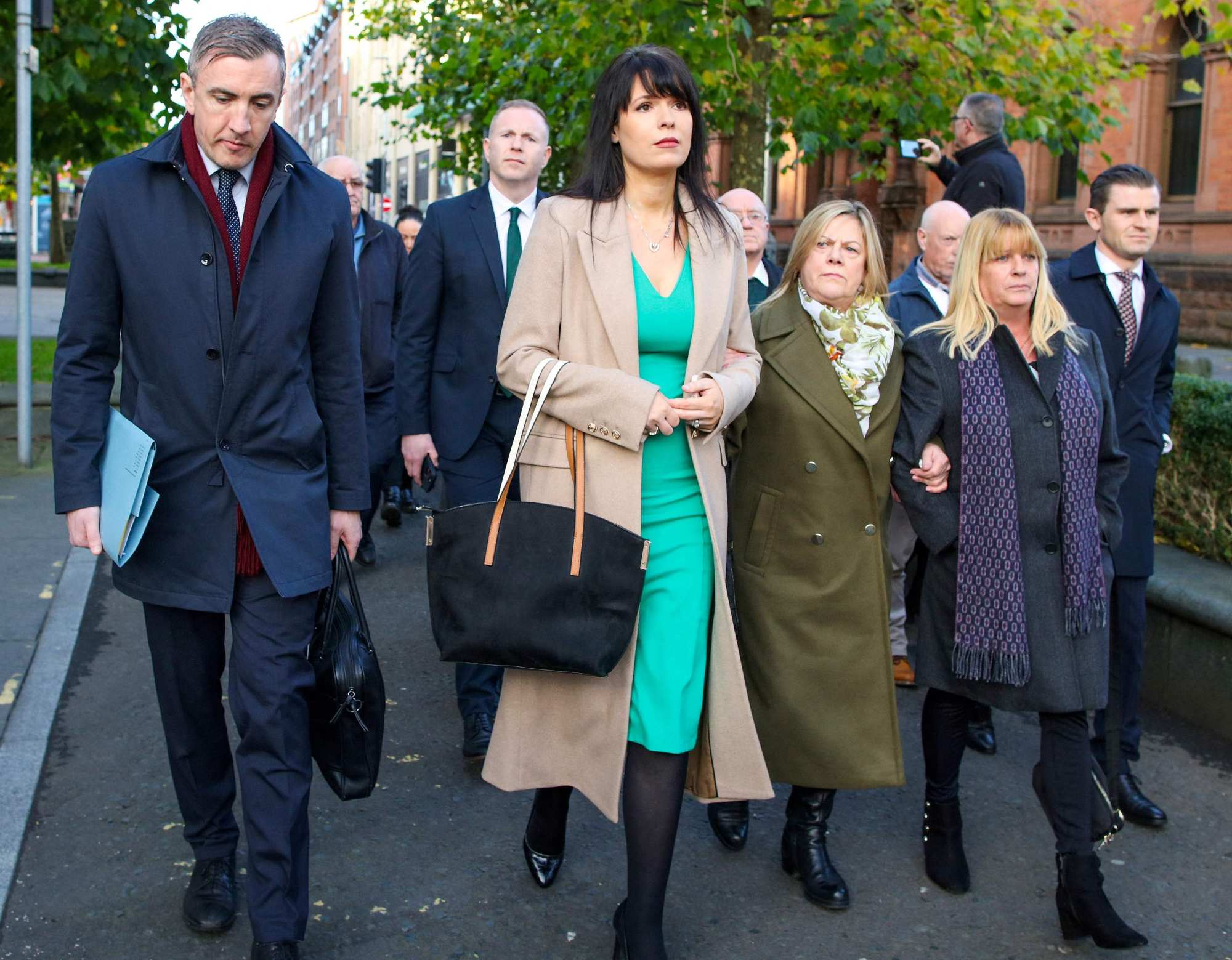It has been condemned by families of those who died during the three decades of violence over British rule in Northern Ireland, known as “the Troubles”, that began in the late 1960s.
The British government removed the political option, and has left us only this legal avenue
All Northern Irish political parties and the Irish government in Dublin oppose the legislation, while Europe’s leading rights watchdog, the Council of Europe, has also expressed “serious concerns”.
Deputy Prime Minister Micheal Martin said Ireland had consistently argued the legislation is “not compatible” with Britain’s obligations under the European Convention on Human Rights (ECHR).
“The decision by the British government … [to] pursue legislation unilaterally, without effective engagement with the legitimate concerns that we, and many others, raised left us with few options,” he said.
“The British government removed the political option, and has left us only this legal avenue.”
The Colony: fictional colonial microcosm set against Ireland’s ‘Troubles’
The Colony: fictional colonial microcosm set against Ireland’s ‘Troubles’
Martin added he had “used every opportunity to make my concerns known” and urged London to pause the legislation.
Taoiseach (prime minister) Leo Varadkar told reporters in Dublin that the court would be asked to carry out a judicial review of the legislation.
“We informed the British government of that this morning.”
Ireland will pursue the case in the European Court of Human Rights in Strasbourg, which oversees the ECHR and is recognised by 46 states including Britain and Ireland.
Martin noted incorporating the convention into Northern Ireland law was a “specific and fundamental requirement” of the 1998 Good Friday peace accords.
That largely ended the Troubles, which saw more than 3,500 people killed.

Around 1,200 deaths from that time remain under investigation, according to the UK government.
Its law – formally called the UK Northern Ireland Troubles (Legacy and Reconciliation) Act 2023 – has been welcomed by groups representing British veterans from the period.
They argue former soldiers have been subjected to unfair prosecutions.
Amnesty International’s Northern Ireland Deputy Director, Grainne Teggart, said the challenge would be vital for victims in Northern Ireland and around the world.
“It’s fantastic news, a great Christmas present for people waiting for inquests, civil cases and prosecutions,” John Teggart, whose father was killed by British soldiers in the Ballymurphy area of Belfast in 1971, told Reuters.
Last year, British soldier David Holden received a three-year suspended sentence for killing a man at a checkpoint in 1988, shooting him in the back.
In Hong Kong’s national security law era, echoes of Ireland’s Troubles
In Hong Kong’s national security law era, echoes of Ireland’s Troubles
Last week, a judge in Northern Ireland said “Soldier F” – the only British soldier charged over the 1972 Bloody Sunday killings of 13 civilians – would stand trial for murder.
There was no immediate comment from the UK government.
But Ireland’s legal action is likely to prove contentious in Britain, where the ECHR is increasingly attacked by right-wing elements within the ruling Conservatives.
They want Prime Minister Rishi Sunak to withdraw the country from the convention over protections if offers to refugees and asylum seekers arriving in the UK.
Additional reporting by Reuters

